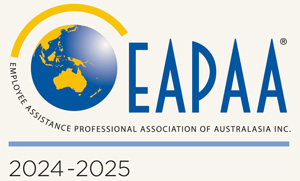The debilitating and destructive nature of alcoholism isn’t limited to the affected person.
It spreads its harm far and wide, those closest to the alcoholic bearing the brunt of its force. If you are a family member of an alcoholic, you are most likely confused, frustrated, angry, and hurt by their behaviour – and with one question burning foremost in your mind: “If they love me, why won’t they stop?”
Q: Why can’t they just stop?
The inability to sober is a better indicator of alcoholism than whether the drinker can stop after one or two drinks.
A genetic predisposition to addiction has been shown in many studies. This makes some people more vulnerable to addiction. This vulnerability varies across all types of people.
Q: “They promised that they were done drinking”.
When an alcoholic tells a loved one that they are going to quit, they are usually sincere. But this sincerity is based on a strong sense of urgency or resolve to try harder to stay sober. They can be unaware of the effects on the brain, and the nature of both short term and long-term withdrawal symptoms.
Q: “They said it was my fault”
Alcoholics are often deep in denial about their problem. Some will do almost anything to shift the blame elsewhere. Because loved ones are often the ones who press the alcoholic the hardest about their problem, they also are most vulnerable to accusations that they are the ones to blame for all the problems.
A: YOU are NOT at fault
Alcoholics drink too much because they are addicted to the physiological effects on the nervous system from alcohol metabolisation.
The best way to help an alcoholic is to stop interfering with the natural progression of consequences.
Q: “How do I make them stop?”
No one can make an alcoholic stop drinking except the individual with the problem. Most alcoholics are unable to stop until their lives have become so unmanageable that it is no longer possible to deny that there is a problem. This bottom can be ‘raised’. This is done by intervention.
Intervention to confront the alcoholic about their problem can be an effective way to shock an alcoholic out of denial, but also may lead to anger, withdrawal and further damage to the relationship. Only a trained professional should coach you in intervention and only one who makes you feel comfortable and can assure you of their competence. Interventions involve friends and loved ones of an alcoholic. Everyone is trained and rehearses their role prior to meeting with the alcoholic.
If they won’t stop, what should I do?
Family members of alcoholics are generally advised to detach themselves from the behaviour of the alcoholic without detaching themselves from the person that they love.
Below are some resources:
- Alcohol.org.nz — Help and support
- Call our Instep EAP team for assistance and support






